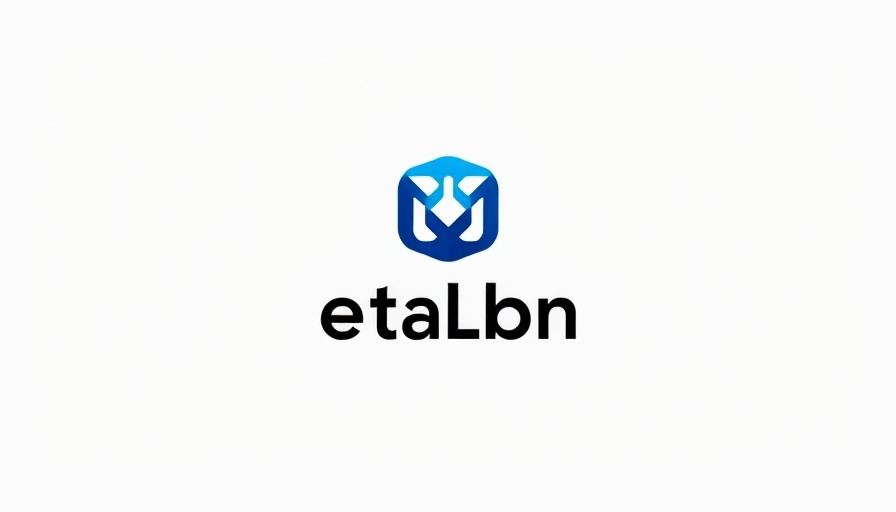
Understanding Meta's Incremental Attribution Tracking
If you're a business owner leveraging Meta's advertising tools, you may have noticed some significant changes in how you can measure your ad performance. In particular, the rollout of Meta's incremental attribution tracking is designed to provide deeper insights into how your ads drive conversions. This innovative approach utilizes advanced AI technology to give you a more precise look at your audience's behavior and the efficacy of your advertising strategies.
The Shift from Traditional Attribution
Previously, Meta offered standard attribution settings that merely counted conversions based on whether a user engaged with an ad within a designated time frame. Typically, this was a window of 1 to 7 days, leaving much ambiguity about the actual influence of ads on consumer decisions. For many small businesses, relying solely on traditional attribution felt like trying to hit a moving target without a clear sight of its trajectory.
Meta’s introduction of incremental attribution tracking marks a shift toward leveraging predictive models that can analyze user interactions in a more sophisticated way. By evaluating not just immediate conversions but also how ad engagement over time correlates with eventual purchases, advertisers can gain a clearer picture of their ad performance. With these insights, businesses can adjust their campaigns for optimal results.
The Importance of Incremental Attribution for Growth
For business owners aiming for growth, understanding the nuances of consumer behavior is crucial. Incremental attribution helps paint this picture, allowing businesses to optimize their advertising spend. By enabling a more targeted analysis of which ads are truly moving the needle, advertisers can allocate their budgets towards high-performing campaigns, ensuring that every dollar is maximized.
Moreover, this approach can significantly affect how products are marketed. For example, a retail company could discern if specific ads lead to direct purchases or if they simply create brand awareness that influences buying decisions later. This kind of insight empowers brands to be strategic about their creative messaging and audience targeting.
Exploring Meta's Attribution Models
Meta's advertising tools now offer two primary attribution models: standard and incremental. Understanding the differences is essential for any advertiser looking to leverage these features for greater success. While traditional attribution focuses on immediate results from ad impressions, clicks, and video plays, incremental attribution aims to provide a broader context of how ads contribute to overall business outcomes.
The standard model primarily optimizes delivery based on user interactions in a predefined time window, potentially overlooking long-term effects that may take longer to materialize. On the other hand, incremental attribution utilizes AI-driven predictions to isolate and credit conversions caused specifically by an ad, thus identifying the true impact of advertising investments.
Pushing the Envelope: Future Insights and Trends
As the advertising landscape continues to evolve, businesses must stay ahead of trends that are likely to shape the future of marketing. The incorporation of AI and machine learning in advertising not only improves attribution tracking but also refines targeting strategies. Meta’s tools exemplify how innovative technologies can provide actionable insights that drive conversion rates.
In the near future, one can anticipate even more sophisticated AI systems that can predict consumer behavior with higher accuracy. This ongoing evolution means businesses should remain agile, adapting to new tools and strategies as they become available.
Practical Insights for Advertisers
Implementing these novel attribution strategies calls for a strategic approach:
- Evaluate Your Current Metrics: Assess your existing advertising performance metrics and determine how they can be supplemented with incremental attribution insights.
- Test and Learn: Use incremental attribution to run A/B tests, comparing the performance of different ads to refine your messaging and audience targeting.
- Prioritize Budget Allocation: Direct resources toward ads that are verifiably linked to conversions based on your incremental attribution reports.
Concluding Thoughts on Attribution Tracking
Meta's incremental attribution tracking is more than just a new feature; it’s a valuable tool for business owners striving for success in an increasingly competitive landscape. This innovative approach provides the necessary depth of insight needed to tailor advertising strategies effectively and foster business growth.
As you evaluate these changes and their implications for your business, consider exploring the benefits of adjusting your advertising strategies to take advantage of these insights. In navigating the complexities of digital advertising, incremental attribution might just be the game-changer you've been searching for.
 Add Row
Add Row  Add
Add 




Write A Comment